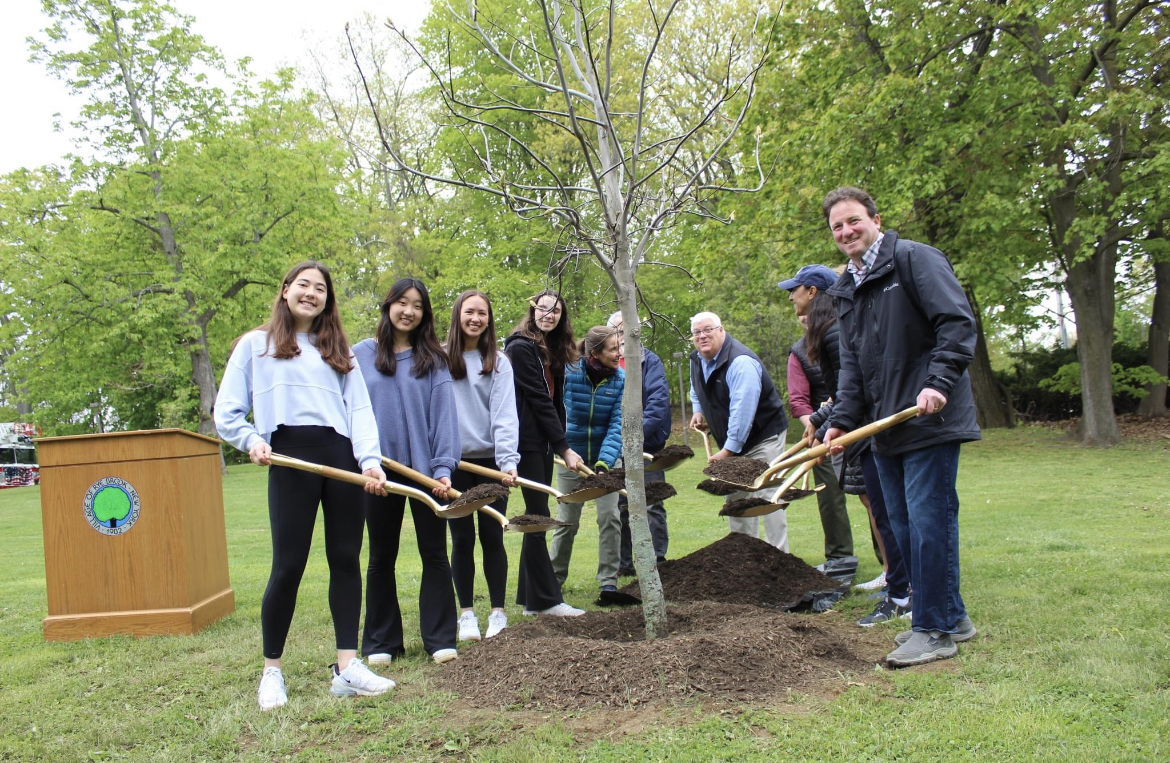In a world where environmental issues are becoming increasingly pressing, it is essential for us to develop a strong sense of Earth consciousness. Earth consciousness compels us to recognize that every action we take, no matter how small, impacts the environment. This deep awareness and appreciation of our planet and its interconnected systems prompts us to live in harmony with nature rather than exploit it. This mindset entails adopting sustainable practices, reducing our dependence on fossil fuels, and embracing the principles of conserving, reusing, and recycling. Recently, I had the privilege of interviewing one of Blind Brook High School’s biology teachers, Ms. Shallo, who shared her insights on the importance of Earth consciousness and the measures she takes to support environmental conservation.
As an advocate for sustainability, Ms. Shallo actively incorporates sustainable practices into her teaching environment. She embraces natural light, ensuring that the classroom utilizes sunlight effectively and minimizes reliance on artificial lighting. By doing so, Ms. Shallo not only reduces energy consumption, but also creates an atmosphere that connects students with the beauty of the natural world.
A conservation-based mindset involves recognizing the intrinsic value of the Earth and its inhabitants. It goes beyond environmental awareness; it encompasses a holistic approach that acknowledges the interdependence of all living beings, and ecosystems. Sustainability begins with taking responsibility for our actions. Each decision we make, from the products we consume, to the energy we use, can either contribute to the degradation of the environment, or promote sustainability. When we cultivate our appreciation for the world, we acknowledge that the health and well-being of the planet are intricately linked to our own.
On days when the weather allows, Ms. Shallo takes her students outside, allowing them to experience the wonders of nature and emphasize the importance of environmental conservation. By encouraging outdoor learning, she inspires her students to develop a deep appreciation for the environment, which motivates them to protect it. Ms. Shallo also runs a paperless classroom, promoting digital resources and minimizing paper waste.
Ms. Shallo also discussed how her commitment to sustainability extends beyond the classroom. At home she practices composting: an environmentally friendly way to reduce food waste and create nutrient-rich soil. Composting not only minimizes the amount of waste sent to landfills, but also provides an opportunity to turn organic matter into a valuable resource for gardening and agriculture.
Being Earth-conscious invites us to adopt a lifestyle that respects and harmonizes with nature. By following Ms. Shallo’s example and embracing sustainable practices, such as renewable energy sources and responsible consumption, we reduce our ecological footprint. We can also encourage others to make environmentally conscious choices by sharing knowledge and leading by example. Moreover, spending time in nature and immersing ourselves in its beauty and tranquility can deepen our connection to the Earth.
To create a lasting impact, we must educate and inspire the next generation to develop sustainability. It is vital for schools to play a crucial role in fostering environmental awareness, and instilling a sense of responsibility towards the planet. By integrating sustainable education into curriculums, organizing eco-focused initiatives, and encouraging outdoor activities, schools can empower students to become active participants in building a sustainable future.







